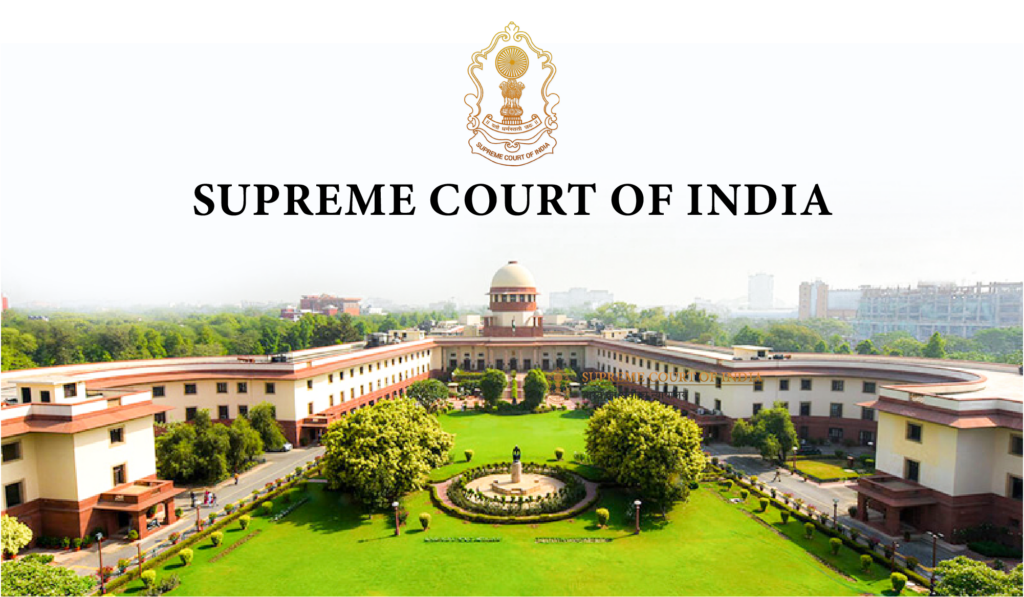The Supreme Court of India on December 20, 2024 has delivered a significant judgment in Criminal Appeal Nos. 5581 and 5582 of 2024 underscoring the principle that FIR of Bank Loans forming part of Economic Offences Cannot be Quashed Based on Settlement. Economic offences, due to their serious implications for public interest, cannot be quashed merely based on settlement between the parties involved in the case and this proposition of law has been settled in case titled as Anil Bhavarlal Jain & Anr. vs. The State of Maharashtra & Ors making it a distinct category requiring stringent scrutiny.
The facts of the case include that the appellants, directors of a private company, were accused of diverting funds from a loan sanctioned by a bank and altering building plans to reduce the value of collateral security, without the bank’s consent. In 2014, the appellants secured a loan of ₹50 crore from the State Bank of India, mortgaging commercial land as collateral. The loan repayments were regular until 2017 when the account was classified as a Non-Performing Asset (NPA) with an outstanding amount of ₹23.86 crore. Before the Debt Recovery Tribunal (DRT) in 2019. The company repaid ₹15 crore as part of a one-time settlement, which led to the closure of the loan account. Despite the settlement, the bank alleged that the appellants diverted funds, caused significant financial loss, and altered the building project plans without consent. Based on these allegations, the Central Bureau of Investigation (CBI) registered an FIR in 2020 under sections of the Indian Penal Code (IPC) and the Prevention of Corruption Act. The appellants sought to quash the FIR and subsequent charge sheet, arguing that the dispute was resolved through settlement. The Bombay High Court dismissed the petitions, stating that the nature of the offences involved broader public interest and could not be nullified merely due to a private settlement. The appellants approached the Supreme Court, challenging the High Court’s decision. The Court dismissed the appeals and upheld the High Court’s decision, emphasizing the following:
- Public Interest at Stake: Economic offences, such as diversion of public funds, directly impact the financial health of institutions and the trust of the public in the economic system. These offences extend beyond individual parties and affect societal interests.
- Delay in Filing FIR: The Court ruled that a delay in lodging the FIR does not inherently weaken the case’s merits, especially when the allegations involve financial misconduct and fraud.
- Settlement Does Not Absolve Criminal Liability: A settlement between the accused and the bank in financial disputes does not extinguish criminal liability in cases involving public money or economic offences.
Case Laws Relied Upon
The Supreme Court referred to several landmark judgments to substantiate its decision:
- Gian Singh vs. State of Punjab (2012): The Court held that while criminal cases with civil disputes can be quashed upon settlement, cases involving moral turpitude, economic offences, or public servants’ misconduct cannot be quashed solely based on a compromise.
- “Offences of mental depravity or moral turpitude under special statutes like the Prevention of Corruption Act cannot be legally sanctioned through settlements.”
- Parbatbhai Aahir vs. State of Gujarat (2017): This case categorized economic offences as a distinct class with far-reaching consequences for the financial system, emphasizing the need to preserve public trust and prevent financial fraud.
- State vs. R. Vasanthi Stanley (2015): The Court observed that serious economic offences, even if delayed in trial or settled by the parties, should not be quashed, as doing so would undermine the integrity of legal processes and public confidence in institutions.
The Supreme Court reiterated that the Prevention of Corruption Act and similar statutes aim to safeguard public interest. Allowing the quashing of such cases based on private settlements would set a dangerous precedent, eroding public trust in financial and legal systems.
The judgment underscores the judiciary’s commitment to upholding accountability in economic crimes, even when settlements are reached, emphasizing that such crimes are not mere private disputes but matters of public interest.
With this ruling, the Supreme Court has sent a strong message about the seriousness of economic offences, reinforcing the importance of protecting public trust in the financial and legal framework of the country.





